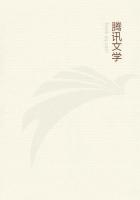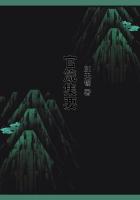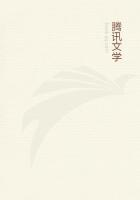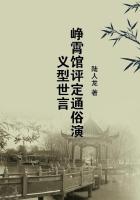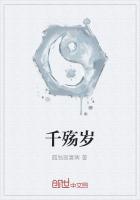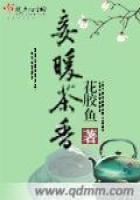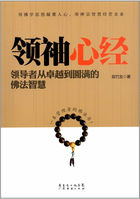Was the queen an accomplice or not? No one has ever known save herself, Bothwell, and God; but, yes or no, her conduct, imprudent this time as always, gave the charge her enemies brought against her, if not substance, at least an appearance of truth. Scarcely had she heard the news than she gave orders that the body should be brought to her, and, having had it stretched out upon a bench, she looked at it with more curiosity than sadness; then the corpse, embalmed, was placed the same evening, without pomp, by the side of Rizzio's.
Scottish ceremonial prescribes for the widows of kings retirement for forty days in a room entirely closed to the light of day: on the twelfth day Mary had the windows opened, and on the fifteenth set out with Bothwell for Seaton, a country house situated five miles from the capital, where the French ambassador, Ducroc, went in search of her, and made her remonstrances which decided her to return to Edinburgh; but instead of the cheers which usually greeted her coming, she was received by an icy silence, and a solitary woman in the crowd called out, "God treat her as she deserves!"
The names of the murderers were no secret to the people. Bothwell having brought a splendid coat which was too large for him to a tailor, asking him to remake it to his measure, the man recognised it as having belonged to the king. "That's right," said he; "it is the custom for the executioner to inherit from the-condemned".
Meanwhile, the Earl of Lennox, supported by the people's murmurs, loudly demanded justice for his son's death, and came forward as the accuser of his murderers. The queen was then obliged, to appease paternal clamour and public resentment, to command the Earl of Argyll, the Lord Chief justice of the kingdom, to make investigations; the same day that this order was given, a proclamation was posted up in the streets of Edinburgh, in which the queen promised two thousand pounds sterling to whoever would make known the king's murderers. Next day, wherever this letter had been affixed, another placard was found, worded thus:
"As it has been proclaimed that those who should make known the king's murderers should have two thousand pounds sterling, I, who have made a strict search, affirm that the authors of the murder are the Earl of Bothwell, James Balfour, the priest of Flisk, David, Chambers, Blackmester, Jean Spens, and the queen herself."
This placard was torn down; but, as usually happens, it had already been read by the entire population.
The Earl of Lennox accused Bothwell, and public opinion, which also accused him, seconded the earl with such violence, that Mary was compelled to bring him to trial: only every precaution was taken to deprive the prosecutor of the power of convicting the accused. On the 28th March, the Earl of Lennox received notice that the 12th April was fixed for the trial: he was granted a fortnight to collect decisive proofs against the most powerful man in all Scotland; but the Earl of Lennox, judging that this trial was a mere mockery, did not appear. Bothwell, on the contrary, presented himself at the court, accompanied by five thousand partisans and two hundred picked fusiliers, who guarded the doors directly he had entered; so that he seemed to be rather a king who is about to violate the law than an accused who comes to submit to it. Of course there happened what was certain to happen--that is to say, the jury acquitted Bothwell of the crime of which everyone, the judges included, knew him to be guilty.
The day of the trial, Bothwell had this written challenge placarded:
"Although I am sufficiently cleared of the murder of the king, of which I have been falsely accused, yet, the better to prove my innocence, I am, ready to engage in combat with whomsoever will dare to maintain that I have killed the king."
The day after, this reply appeared:
"I accept the challenge, provided that you select neutral ground."
However, judgment had been barely given, when rumours of a marriage between the queen and the Earl of Bothwell were abroad. However strange and however mad this marriage, the relations of the two lovers were so well known that no one doubted but that it was true.
But as everyone submitted to Bothwell, either through fear or through ambition, two men only dared to protest beforehand against this union: the one was Lord Herries, and the other James Melville.
Mary was at Stirling when Lord Herries, taking advantage of Bothwell's momentary absence, threw himself at her feet, imploring her not to lose her honour by marrying her husband's murderer, which could not fail to convince those who still doubted it that she was his accomplice. But the queen, instead of thanking Herries for this devotion, seemed very much surprised at his boldness, and scornfully signing to him to rise, she coldly replied that her heart was silent as regarded the Earl of Bothwell, and that, if she should ever re-marry, which was not probable, she would neither forget what she owed to her people nor what she owed to herself.
Melville did not allow himself to be discouraged by this experience, and pretended, to have received a letter that one of his friends, Thomas Bishop, had written him from England. He showed this letter to the queen; but at the first lines Mary recognised the style, and above all the friendship of her ambassador, and giving the letter to the Earl of Livingston, who was present, "There is a very singular letter," said she. "Read it. It is quite in Melvine's manner."
Livingston glanced through the letter, but had scarcely read the half of it when he took Melville by the hand, and drawing him into the embrasure of a window "My dear Melville," said he, "you were certainly mad when you just now imparted this letter to the queen: as soon as the Earl of Bothwell gets wind of it, and that will not be long, he will have you assassinated. You have behaved like an honest man, it is true; but at court it is better to behave as a clever man. Go away, then, as quickly as possible; it is I who recommend it."

